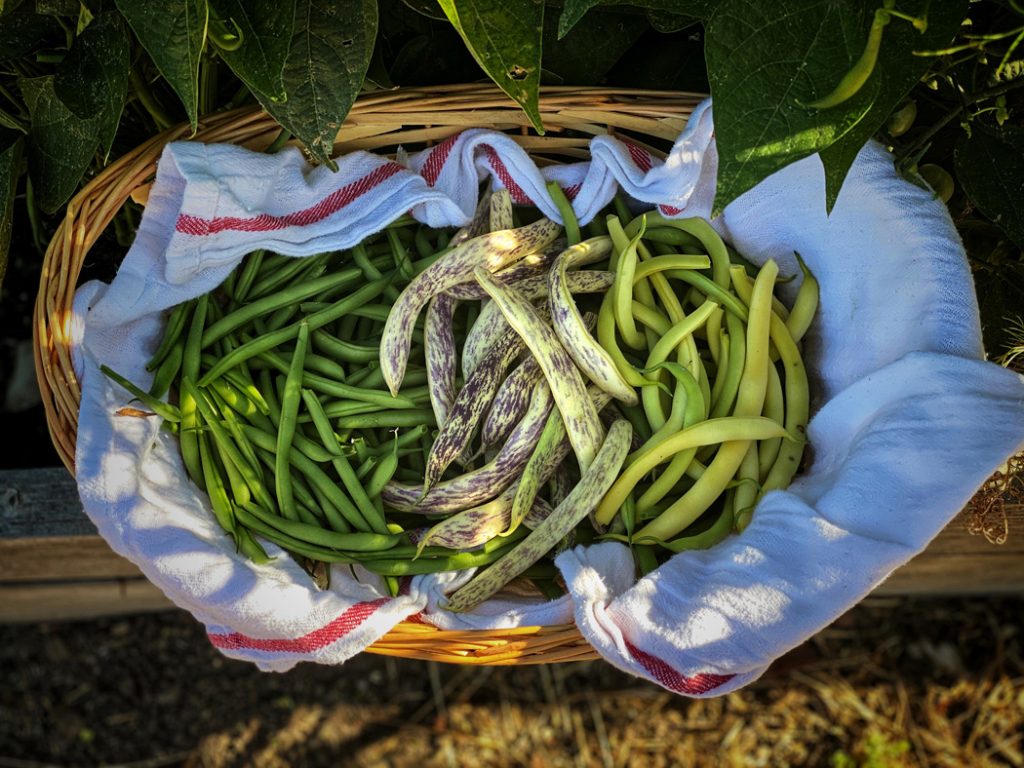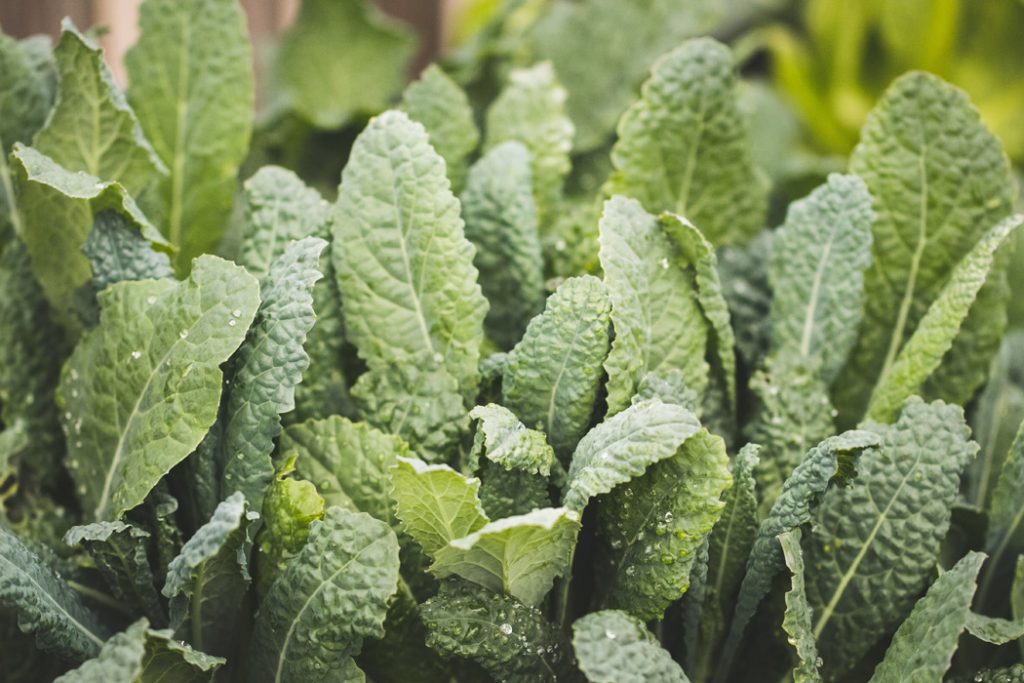
I am Alice, and Wonderland is my garden—a rabbit hole of planting, digging, weeding, feeding, mulching, mowing, loving, and dreaming. My husband and I are market gardeners; we sell garden seedlings and herbal infusions at Iowa farmers markets and shops. But the more we grow for market, the less time I have for my personal kitchen garden. So over the years I have split into two gardening personalities: the market gardener and the weekend gardener. The market garden is my business, my passion, my life. The weekend garden is what I do to grow the best food for my table in the most efficient and economical way possible. The weekend garden is the way I, and you, can grow food despite the demands of crazy, busy, modern life. Here are my weekend garden guidelines.
Forget Roots, Go for Fruits
The key to the weekend garden is ROE: return on effort. Some plants feed you all season long in exchange for just a little spring effort, like kale. These are high ROE plants. Some plants require care all season long in exchange for one end-of-season harvest, like Brussels sprouts. These are low ROE plants. I’ve learned to grow high ROE plants in my Weekend Garden and buy low ROE plants at the market.
What’s a low ROE plant? The vegetables you can almost buy cheaper than you can grow them. Think carrots. Carrot seeds are tiny, carrots require thinning, and carrots are tricky to weed. If the soil isn’t right, they grow funny. And they must be dug out of the ground. Meanwhile, a pound at the market costs a couple of bucks. Low ROE plants are also space hogs, nutrition suckers, and pest attractors. I don’t grow potatoes, beets, turnips, broccoli, sweet corn, melons, onions, cabbage, or cauliflower for these reasons.

What’s a high ROE plant? The vegetables that are expensive in the store not because they’re difficult to grow but because they’re difficult to transport and keep fresh. Think basil. High ROE plants produce multiple times over each season, are easy to harvest, and are fairly disease and pest resistant. I grow greens of all kinds, herbs, tomatoes, peppers, eggplants, green beans, okra, and summer and winter squash for these reasons.
Stick to the Season
In our first year of market gardening we toured the farm of Larry the Lettuce Guy, and I can still hear him saying: “I don’t set out my tomatoes early. I put my tomatoes out when the weather is right. And I have tomatoes at market the same time as everyone else. Nature tells the tomatoes what to do.” So for my weekend garden, I stick to the season. I put my tomatoes out only after last frost. And off season, I buy from the people who are set up for professional season extension.
For my weekend garden, I wouldn’t start plants from seed. Plants are cheap, and starting from seed is a low ROE proposition unless you do it on a larger scale with a professional setup. Plus, plant shopping is fun!
Put Effort into Prevention
Weeds will make or break your garden, especially if you’re gardening only on the weekend. Luckily, the solution to weed control also benefits your soil: keep the ground covered. My prevention secret is this: five layers of wet newspaper covered by straw mulch. This keeps light from reaching the ground and thus prevents weed seeds from germinating. Follow this method and you’ll hardly ever weed once your garden is planted and covered.
Good mulching also regulates water in your garden. My goal is to water once, when I plant, and leave the rest to nature. Most years we get enough rains. Some years we get too much rain. And that’s why I also plant in raised beds. But they’re not the beautiful cedar-wood raised beds you see in home magazines. They are literally raised mounds of soil. That’s all you need for a functioning raised bed.
Become a Nutrition Hack
If you live in Iowa, chances are you have decent soil in your backyard. For my weekend garden, I add worm castings, which release their nutrients slowly over time and reduce the chance of overfertilizing. Worm castings keep your garden in good health all summer long.
Live and Let Live
My garden philosophy is “I am of nature, not against nature.” I prefer to let living things live whenever I can. Again, I favor prevention. I use a good fence to keep animals out. A loud barking dog works too. I also go for plants that are less susceptible to pests and disease. Since I plant a little more than I need, I sometimes let others besides me feast on my food.
The weekend garden is not about being self-sufficient or planting the garden of the year. It’s about spending a few hours each week in a place you love raising amazing food, so you can enjoy one of the best benefits of living where we do: garden-to-table flavor on your plate.
Jocelyn Engman is the owner of Pickle Creek Herbs in Fairfield.
